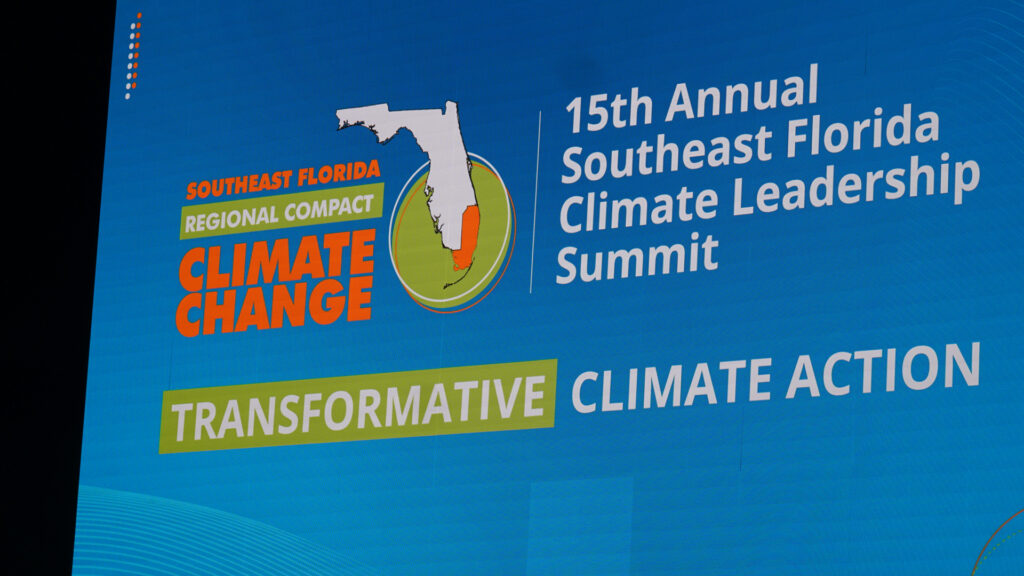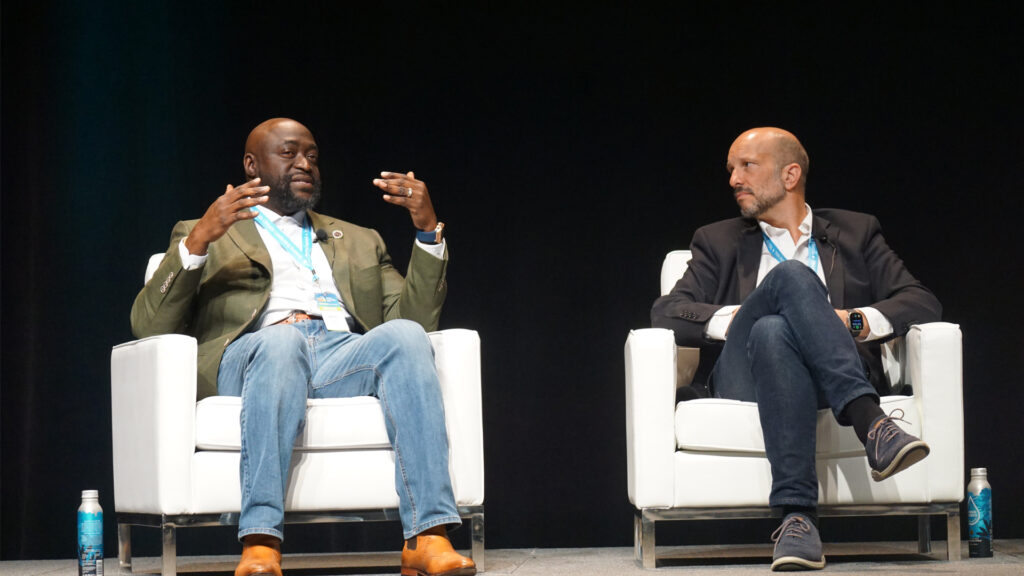By Autumn N. Bryan, FAU Center for Environmental Studies
South Florida has long been considered ground zero for sea-level rise and other impacts of climate change. Now the region has the chance to be a center of innovative ways to address these impacts thanks to its designation as a Climate Resilience Tech Hub, according to a recent panel discussion on the issue.
The U.S. Department of Commerce’s Economic Development Administration announced last month that South Florida would be one of 31 regional tech hubs across the country and the only one focused on climate adaptation and mitigation. The designation, which includes Broward, Miami-Dade, Monroe and Palm Beach counties, unlocks access to tens of millions of dollars in potential government funding.

“We knew that if we were going to tackle climate change, there was no way that we could divide out the importance of the region,” said Francesca de Quesada Covey, chief of innovation and economic development for Miami-Dade County. “One of the things that the mayor always says is ‘You can’t tell water to stop at the city limits.’ And we extended that thinking to, ‘You can’t just tell water or heat or any of the other issues that we’re facing to stop at the county limits.’”
De Quesada Covey spoke during a panel at the 15th Annual Southeast Florida Climate Leadership Summit, held this month in Miami Beach. The summit was attended by government officials, including Miami-Dade Mayor Daniella Levine Cava, as well as innovators, developmental professionals and data experts who showcased the region’s work on climate policy and technology.
Energy efficiency was one theme mentioned at the panel on the Climate Resilience Tech Hub designation. Heating and cooling in the United States is expensive, adding to the overall energy bill as temperatures rise. Retrofitting buildings and making other energy-efficiency improvements creates both blue- and white-collar jobs, said Ivan Rapin-Smith, president of Watsco Ventures.
Rapin-Smith heads the startup incubator and venture investment fund of a Miami-based company that supplies air conditioning, heating and refrigeration equipment. He said there is a “hidden industry” of jobs in the field that can’t be replaced by artificial intelligence.
“Chat GPT is not going to change an AC system out there,” he said.

But getting workers trained for emerging fields requires educational institutions working with businesses to identify the skills that are needed, said Newton Sanon, president and CEO of OIC of South Florida. OIC is a community-based workforce, job development and training organization.
Sanon said the effort needs to begin in K-12 schools, starting with educating the coming workforce about climate technology and economic opportunities in the green job sector.
“That’s really the true strategy for (a) talent pipeline,” he said. “If you don’t understand it, how do you aspire to something that you don’t even know exists?”
The summit featured booths with companies developing new climate technology. They included X-Reef’s 3D-printed artificial reefs, designed to eliminate shore erosion and promote coral health; a platform for the public to upload text or images about the climate-related changes called ISeeChange; and PowerPanel, which designs, manufactures and distributes solar and thermal technologies to businesses.
De Quesada Covey said addressing the impacts of climate change on the region requires building an adaptable workforce.
“One of the takeaways that I have from this conference is that change is the only constant,” she said.
This article was written by Autumn N. Bryan, a graduate student at Florida Atlantic University pursuing a master’s degree in the geoscience program. She works as a research assistant for FAU’s Center for Environmental Studies and reporter for The Invading Sea.



